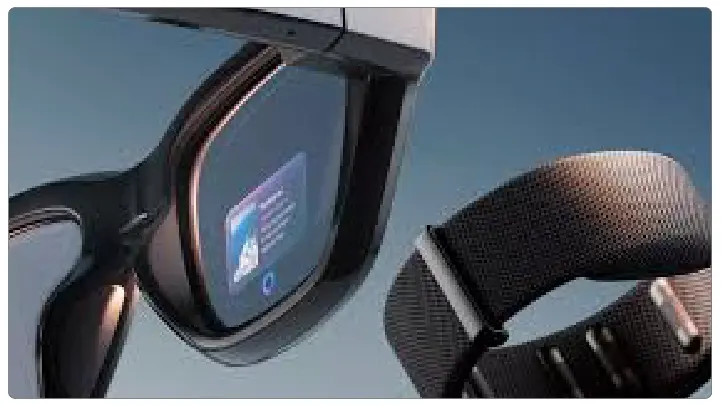Meta Unveils Smart Glasses with Built-In Display, Paving the Way for Superintelligence
With the introduction of its first smart glasses with an integrated display, Meta has taken a bold step into the future of wearable technology. The company unveiled the new Meta Ray-Ban Display at its Connect event in Menlo Park, California, fusing cutting-edge AI capabilities with fashionable eyewear. The glasses are made with a seamless combination of fashion, functionality, and artificial intelligence. They come with a wristband controller that lets users manage messages or answer calls using hand gestures. Mark Zuckerberg, CEO of Meta, called the invention a significant turning point in the company's goal of developing superintelligence.

Set to be available in stores starting September 30, with prices beginning at $799, the Ray-Ban Display incorporates a tiny screen embedded in the right lens. Although basic features like notifications are currently supported by the display, the device's purpose is to demonstrate how AI can be directly incorporated into commonplace accessories. Meta unveiled the Oakley Vanguard, a sport-oriented model that costs US$499 in addition to this high-end model. With a battery life of up to nine hours and integrated support for health platforms like Garmin and Strava, the Vanguard model is aimed at fitness enthusiasts.
In addition to the two new launches, Meta also upgraded its earlier generation of Ray-Ban smart glasses, which do not include a display. Sharper cameras, improved performance, and almost double battery life are all features of these upgraded models. Although more expensive than its predecessors, the updated line, which retails at US$379 379 is positioned as a more cost-effective entry point into Meta's expanding wearable ecosystem.
Despite the considerable buzz surrounding Meta's new glass industry insider, insiders are still wary. Widespread adoption by regular consumers may be hampered by the expensive tags and restricted functionality of the built-in display. Nonetheless, experts view these gadgets as a test bed for Meta's more ambitious plans, such as the Orion project, which aims to create next-generation smart smartglasses by 2027. Meta is more focused on developing technologies that have the potential to revolutionize how people engage with digital content in their daily lives than on achieving immediate commercial success with this rollout.
The launch also comes at a time when Meta is under scrutiny for the impact its platforms have on young users. Recent reports revealed concerns over inappropriate chatbot interactions with minors and alleged discouragement of research into the potential harms of virtual reality. These controversies could overshadow Meta’s hardware ambitions, raising questions about whether the company can balance innovation with safety. Meta is signaling its determination to lead the race in wearable AI and reshape the future of connected experiences.